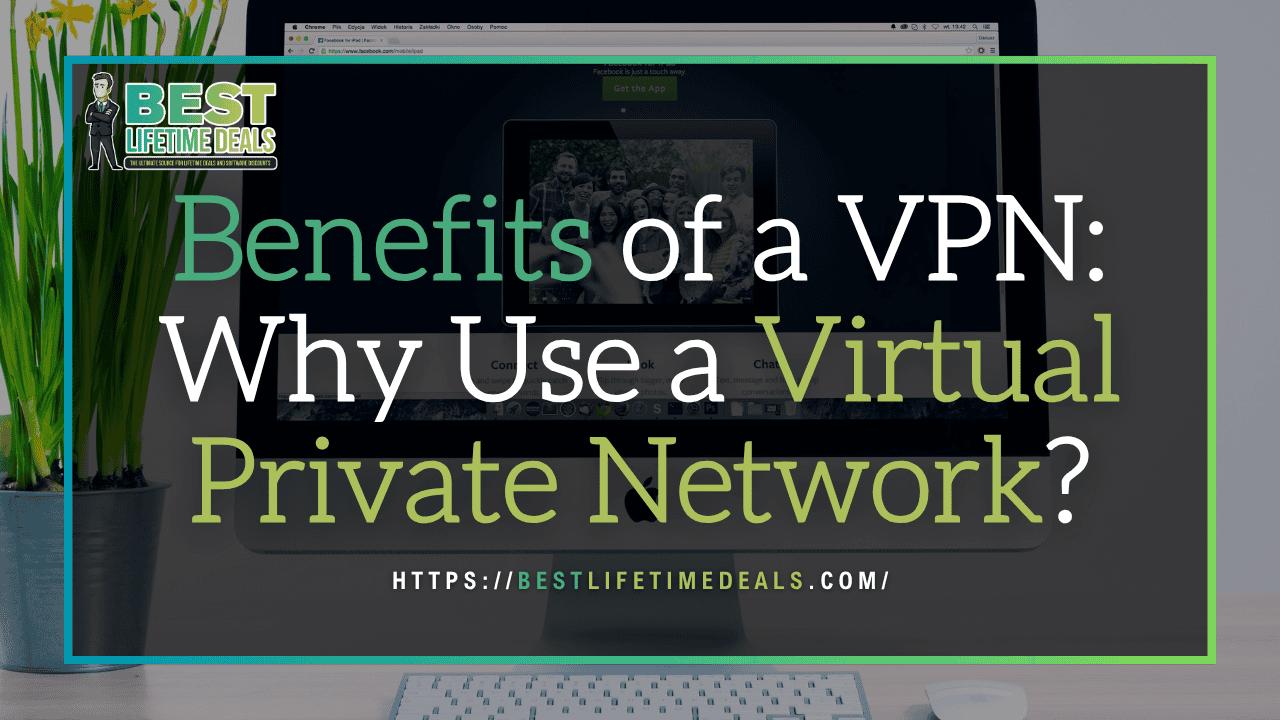
Protect Your Privacy, Secure Your Data, and Enjoy Safe Browsing with a Reliable VPN
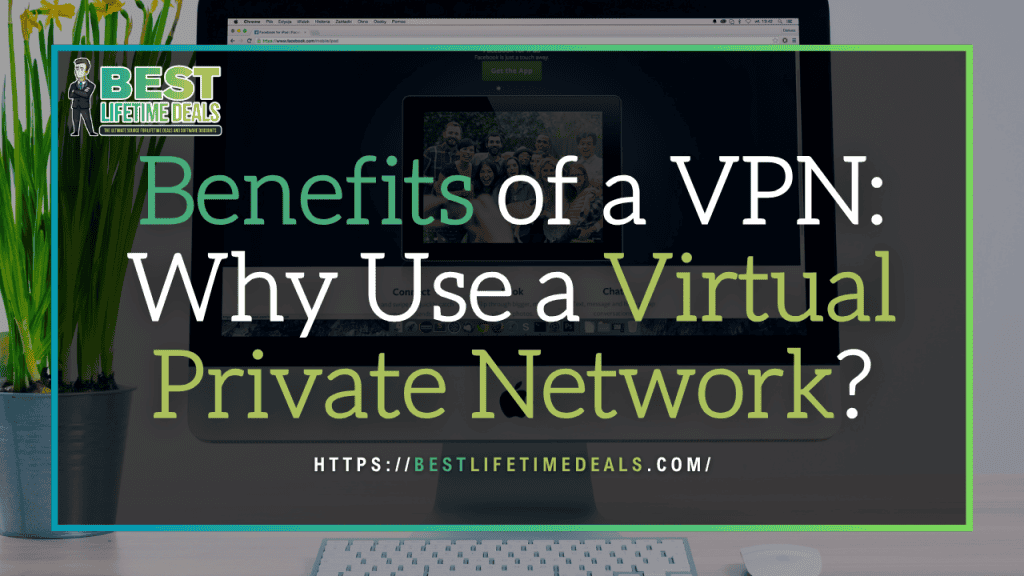
In an era where online privacy and security are paramount, many individuals and businesses are turning to Virtual Private Networks (VPNs) as a solution to protect their digital lives. A VPN creates a secure connection between your device and the internet, allowing you to browse, stream, and communicate with confidence. In this article, we will explore the myriad benefits of using a VPN while also examining its disadvantages and providing guidance on how to choose the best VPN service for your needs.
The Key Benefits of Using a VPN
Using a VPN for Enhancing Online Privacy
One of the most significant benefits of using a VPN is the enhancement of online privacy. By encrypting your internet connection, a VPN masks your IP address, making it difficult for third parties, including your Internet Service Provider (ISP) and potential hackers, to track your online activities. When you use a VPN, your personal data remains private, allowing you to browse the web without the fear of being monitored. This is particularly important in today’s digital landscape, where data breaches and identity theft are increasingly common. By employing VPN technology, users can enjoy a more secure online experience and better protect their sensitive information.
Can a VPN Help in Bypassing Geo-Restrictions?
Another essential benefit of a VPN is its ability to bypass geo-restrictions. Many streaming services and websites limit access to their content based on the user’s geographical location. By connecting to a VPN server in a different country, you can effectively change your perceived location and access content that may otherwise be unavailable. This advantage is particularly beneficial for travelers who want to enjoy their favorite shows or services while abroad, as well as for individuals looking to access blocked websites in their region. The ability to use a VPN for this purpose has transformed the way people consume online content, granting them the freedom to explore the internet without limitations.
The Security Benefits of a VPN
In today’s digital age, online security is more important than ever. With cyber threats becoming increasingly sophisticated, protecting your personal information from hackers and cybercriminals is essential. One of the most effective ways to safeguard your data and maintain privacy is by using a VPN (Virtual Private Network). A VPN offers several critical security benefits, making it an indispensable tool for anyone who values their online privacy.
1. Encrypting Your Internet Connection
The core function of a VPN is to encrypt your internet connection, making it nearly impossible for outsiders to intercept your online activity. This encryption protects sensitive data, such as personal details, passwords, and financial information, from potential threats. Whether you’re browsing the web, shopping online, or accessing sensitive information, VPN encryption adds a vital layer of defense against hackers and cybercriminals who might attempt to steal your data.
2. Protection on Public Wi-Fi Networks
One of the biggest risks to online security is using public Wi-Fi networks, such as those found in cafes, airports, or hotels. These networks are often not encrypted, making them prime targets for hackers who can intercept unprotected data. When connected to a public Wi-Fi network, a VPN ensures that your data remains encrypted and protected, preventing anyone on the same network from accessing your sensitive information.
Using a VPN while on public Wi-Fi provides peace of mind, knowing that your personal details and browsing activities are shielded from prying eyes.
3. Maintaining Confidentiality and Anonymity
A VPN secures your data and helps maintain anonymity while you browse the internet. By masking your IP address and routing your traffic through a remote server, a VPN ensures that your online actions cannot be traced back to you. This anonymity is crucial for anyone concerned about their online privacy, as it makes it significantly harder for websites, advertisers, and even cybercriminals to track your browsing history or gather personal information.
4. Preventing Data Theft and Identity Theft
By encrypting your connection and masking your IP address, a VPN reduces the risk of data theft and identity theft. Cybercriminals often use methods like man-in-the-middle attacks to intercept communications and steal sensitive information. With a VPN in place, your data is protected from these types of attacks, helping prevent your personal information from being compromised.
5. Additional Security Features
Many premium VPN providers go beyond simple encryption and offer additional security features to enhance your online safety. These features may include malware protection, ad-blocking, and even anti-tracking tools. By blocking malicious ads, websites, and software, these features further reduce the risk of encountering cyber threats, such as viruses or spyware.
Some VPNs also offer kill-switch features, which automatically disconnect your internet if the VPN connection drops, ensuring your data is never exposed in case of a connection failure.
6. Peace of Mind and Online Safety
Ultimately, a VPN provides an additional layer of security for your online activities, ensuring peace of mind. Whether you’re browsing the internet, shopping online, or accessing sensitive accounts, a VPN ensures that your data remains private and secure. This level of protection is invaluable, especially as cyber threats continue to evolve.
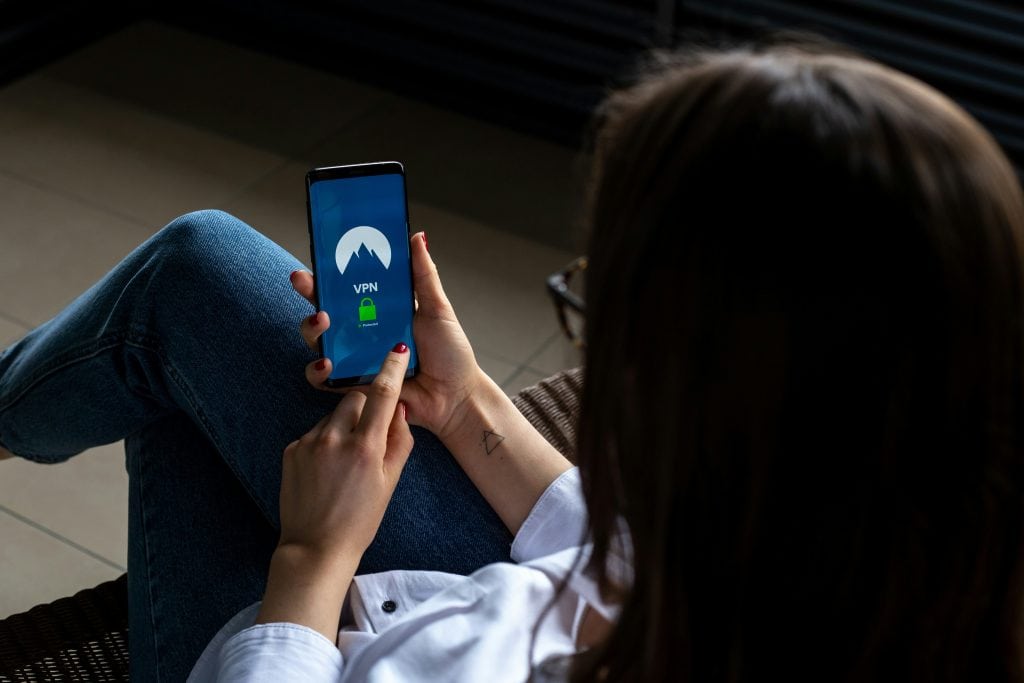
The Disadvantages of Using a VPN
Common VPN Disadvantages
While the benefits of using a VPN for online security and privacy are clear, it’s also essential to be aware of the disadvantages that come with it. Understanding these limitations will help you make informed decisions and ensure that the VPN you choose fits your needs. Here are some of the most common drawbacks associated with VPN use:
1. Reduced Internet Speed
One of the most frequently mentioned downsides of using a VPN is the potential reduction in internet speed. Since a VPN works by encrypting your data and routing it through a remote server, it adds an additional layer of processing to your internet connection. This extra step can slow down your internet speed, especially if you are connecting to a server that is geographically far from your location or if the server is experiencing high traffic.
Although premium security providers typically optimize their services to minimize speed reduction, users may still notice slower speeds, particularly for activities that require high bandwidth, such as video streaming, online gaming, or large file downloads. If speed is a critical factor for your activities, it’s important to test out the VPN’s performance during a trial period to ensure it meets your needs.
2. Server Overload
Another factor that can contribute to slower speeds is server overload. VPN providers maintain multiple servers, but excessive user connections to the same server can cause congestion and performance issues. This is particularly common during peak usage times when many people are accessing the internet through the same VPN server.
To mitigate this, some VPN providers offer features that allow you to switch to less crowded servers, but it’s still something to keep in mind when choosing your VPN service. If you experience slow speeds consistently, switching to a different server or location may help resolve the issue.
3. Compatibility Issues with Some Websites or Services
Despite VPNs’ design to protect your online anonymity, some websites and online services may completely block VPN traffic. Popular streaming platforms, like Netflix or Hulu, sometimes restrict access to users who are connected through a VPN. Additionally, online banking or certain websites with strict security measures might flag VPN traffic as suspicious, potentially leading to access issues or account verification requirements.
If you need to access specific services that block VPN connections, check if the VPN provider offers dedicated servers or specialized features for bypassing these restrictions. Some VPNs also offer obfuscated servers, which mask VPN traffic to avoid detection by websites or services.
4. Device and Platform Compatibility
Some devices, operating systems, or platforms may not be fully compatible with certain VPN providers. While most major VPN services work well with Windows, macOS, Android, and iOS, there may be issues with smart TVs, gaming consoles, or routers. If you plan to use your VPN across multiple devices or with specific hardware, ensure that the VPN service offers compatible apps or configurations for those platforms.
For example, while VPN apps are commonly available for smartphones and desktop computers, you may need to set up a VPN manually on other devices like smart TVs or gaming consoles, which can be a more complicated process. Always check the device compatibility before purchasing a VPN subscription to avoid potential headaches.
5. Subscription Costs
While VPNs can offer great value in terms of privacy and security, they do come with a cost. Some VPN services offer free deals, but these often come with limitations, such as slower speeds, fewer server options, or lack of robust security features. Premium VPNs often require a subscription, which can add up over time, particularly if you’re subscribing to an annual plan.
That said, investing in a reliable, high-quality VPN can provide peace of mind and long-term benefits for data protection and privacy, making the cost worthwhile for many users. It’s important to consider your budget and weigh the benefits of privacy against the cost of the subscription.
Does Using a VPN Affect Internet Speed?
Indeed, using a VPN can affect your internet speed, and this is a significant consideration for many users. Factors such as server location, server load, and the quality of the VPN service can all influence the speed of your connection. For instance, connecting to a nearby VPN server generally results in better speeds compared to connecting to a server on the other side of the world. Additionally, not all VPN providers offer the same quality of service; therefore, users should carefully research and choose a VPN that balances speed with security. For those who require high-speed internet for activities like streaming or gaming, selecting the best VPN with fast servers is essential.
Risks with Free VPN Services
While free VPN services may seem appealing due to their zero-cost nature, they often come with significant security risks and privacy concerns. It’s essential to understand that not all VPNs are created equal, and free versions often fall short in providing the level of protection that users expect. Here are some of the key risks associated with using free VPN services:
1. Inadequate Encryption and Security Features
One of the main purposes of a VPN is to provide encryption and secure online activity. However, many free VPN providers fail to offer robust encryption protocols, leaving users’ data vulnerable to interception. Without strong encryption, your internet traffic could be exposed to hackers, data thieves, and other malicious actors. Free VPNs may also lack additional security features like malware protection and firewalls, further compromising your online safety.
Free VPNs are more likely to have weak encryption standards, which means your personal data could be at risk while using unsecured networks, such as public Wi-Fi. This is especially concerning if you use the VPN for sensitive activities, like online banking or shopping.
2. Data Logging and Privacy Violations
Many free VPN providers compromise user privacy by logging and selling user data to third parties. While the primary reason for using a VPN is to enhance privacy, some free VPNs actually undermine this goal by tracking and storing user activity. These providers may collect information about your browsing habits, location, and personal details, then use or sell this data to advertisers or other companies.
This practice directly contradicts the privacy protection users seek when choosing a VPN service. If a VPN provider is logging your data, it may be exposed to external parties, leaving your personal information vulnerable. Always review the privacy policy of any VPN service—free or paid—before deciding to use it.
3. Intrusive Ads and Malware Risks
Another major drawback of free VPNs is the presence of intrusive ads. To offset the lack of subscription fees, many free VPN providers display ads to users during their browsing sessions. These ads can be annoying and distracting, but they may also pose additional risks. Some free VPNs have been known to inject malicious ads that can lead to malware infections, phishing attempts, or other types of online scams.
Furthermore, because free VPNs often rely on ad revenue, they may prioritize generating income over ensuring your security. This can lead to more exposure to harmful ads or third-party data collection.
4. Limited Server Locations and Speed
Free VPN services typically offer limited server options, which can affect both the speed and accessibility of the service. Users may find themselves connected to a crowded server, leading to slower speeds and potential interruptions in their internet connection. If you need reliable and fast internet speeds for activities like streaming, gaming, or video conferencing, a free VPN may not be able to meet your needs.
Additionally, many free VPNs have a smaller selection of server locations, meaning you may not be able to access content or services available in other regions. This limits the flexibility and functionality of the VPN service.
5. Risk of Exposure and Data Breaches
A significant risk with free VPNs is that some may be poorly maintained or lack the necessary security audits to ensure they are free from vulnerabilities. Some free VPN services have been found to have significant security loopholes or even have a history of data breaches, exposing user information. This makes free VPNs a risky option for users who require a high level of data protection.
Using a VPN with inadequate security measures can result in the very outcome you’re trying to avoid: the exposure of your personal data or the compromise of your online activities.
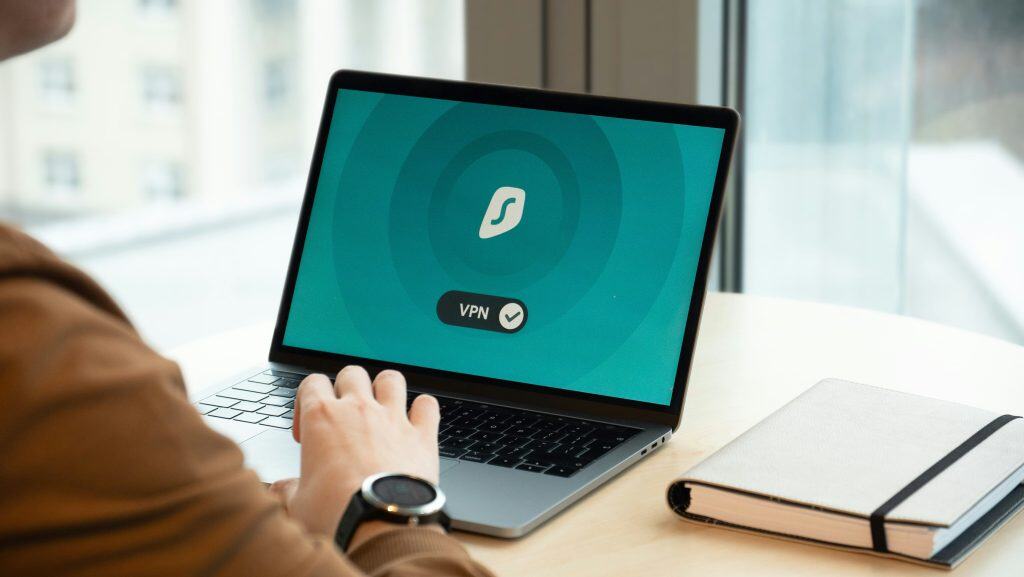
How to Choose the Best VPN Service
What Features Should You Look for in a VPN Provider?
Choosing the right VPN provider can greatly enhance your online security and privacy, but with so many options available, it’s essential to evaluate key features that align with your needs. Whether you’re a freelancer, business owner, or someone simply looking to protect your personal data, selecting a VPN service that offers comprehensive features is critical for ensuring a safe and seamless internet experience. Here are the most important features to look for when choosing a VPN provider:
1. Strong Encryption Protocols
The primary purpose of a VPN is to encrypt your internet connection and protect your data from hackers, cybercriminals, and other online threats. When selecting a VPN, look for strong encryption protocols, such as AES 256-bit encryption. This is one of the most secure encryption standards available and is used by governments, financial institutions, and security experts worldwide.
Encryption ensures that your data remains private and secure, even when you’re connected to unsecured networks like public Wi-Fi. Always check the encryption protocols offered by the VPN provider to ensure they are robust enough to keep your online activities safe.
2. No-Logs Policy
A no-logs policy means the VPN provider does not track or store your online activities. This is an essential feature for maintaining privacy while using the service. Many premium VPN providers are transparent about their commitment to not logging data, and they conduct independent audits to verify their claims. This is especially important if you’re concerned about your personal information being sold to third parties or shared with authorities.
Always review the VPN provider’s privacy policy to confirm they follow a strict no-logs policy. Providers with a history of respecting user privacy often gain trust in the market.
3. A Wide Range of Server Locations
The number of server locations available plays a key role in the flexibility and effectiveness of a VPN service. A wide range of server locations allows you to bypass geo-restrictions, access content from different countries, and enjoy faster speeds by connecting to nearby servers.
Look for VPNs that offer servers in multiple countries and regions, especially if you need to access region-locked content on streaming platforms like Netflix, Hulu, or BBC iPlayer. The more server options you have, the better control you’ll have over your online experience.
4. User-Friendly Interface
The user interface (UI) of a VPN client is essential for ease of use. A clean, intuitive design makes it easier to connect to servers, adjust settings, and monitor your VPN connection. A simple, user-friendly interface can significantly enhance your experience, especially if you’re new to VPNs or technology in general.
Look for VPN providers that offer easy-to-navigate apps for multiple platforms, including Windows, macOS, iOS, Android, and even routers. The app should be responsive and require minimal effort to set up and use.
5. Split Tunneling
Split tunneling is a valuable feature that allows you to choose which apps or websites use the VPN and which ones don’t. This is particularly useful if you want to access local content or services while still securing sensitive activities through the VPN.
For example, if you’re browsing websites for work but don’t want your streaming service to be affected by the VPN, you can use split tunneling to exclude the streaming app from the VPN connection. This provides you with greater flexibility and control over your internet activities.
6. Kill Switch Functionality
A kill switch is a critical safety feature that automatically disconnects your internet if the VPN connection is lost, preventing your real IP address and data from being exposed. This ensures that your privacy is never compromised, even in the event of a dropped VPN connection.
Always check if the VPN provider offers a kill switch feature, and ensure it is available across all devices you plan to use with the VPN. This feature provides an extra layer of protection, especially when using public or untrusted networks.
7. Support for Multiple Devices
A comprehensive VPN service should support multiple devices simultaneously, allowing you to protect all of your devices with a single subscription. Many VPN providers offer multi-device support, but the number of devices varies by service.
Look for a VPN that supports Windows, macOS, iOS, Android, and smart devices like routers, gaming consoles, and smart TVs. The ability to protect multiple devices with one subscription ensures that your entire household or team stays secure while browsing the internet.
8. Fast Connection Speeds
While encryption is essential, it shouldn’t come at the cost of connection speed. VPNs can sometimes slow down internet speeds due to the encryption process and distance between the server and your location. To enjoy uninterrupted streaming, gaming, or browsing, look for a VPN that offers fast connection speeds with minimal buffering or lag.
Check the provider’s speed tests or reviews to ensure they offer reliable and fast servers. Many premium VPNs provide dedicated servers for high-speed activities like streaming or gaming.
9. Customer Support
A reliable customer support team can be a lifesaver when troubleshooting VPN issues or needing assistance with setup. Whether it’s a technical issue, billing question, or help with selecting the best server, customer support should be responsive and accessible.
Choose a VPN provider that offers 24/7 support with multiple contact options, such as live chat, email, or phone support. Good customer support can make a significant difference in ensuring a smooth and hassle-free experience with your VPN service.
Evaluating VPN Server Locations
The geographic distribution of a VPN’s server locations can greatly influence your online experience. A robust VPN service should offer a diverse range of servers across various countries, allowing users to connect to the most relevant and advantageous locations for their needs. When evaluating VPN server locations, consider factors such as proximity, server load, and the availability of specific countries to bypass geo-restrictions. A well-distributed network of servers can enhance connection speeds and provide better access to content, making it a vital aspect to consider when choosing a VPN provider.
The Best VPN Options for Streaming Services
Those seeking to improve their streaming experience should be aware that not all VPNs are equal. The best VPNs for streaming services are specifically optimized to bypass restrictions imposed by platforms like Netflix, Hulu, and BBC iPlayer. These VPNs often have specialized servers designed to handle high-bandwidth activities, ensuring smooth streaming with minimal buffering. When searching for the best VPN for streaming, users should look for providers that regularly update their server IPs to avoid detection by streaming services and offer features that enhance streaming performance. This ensures that you can enjoy your favorite content without interruptions while using a virtual private network.
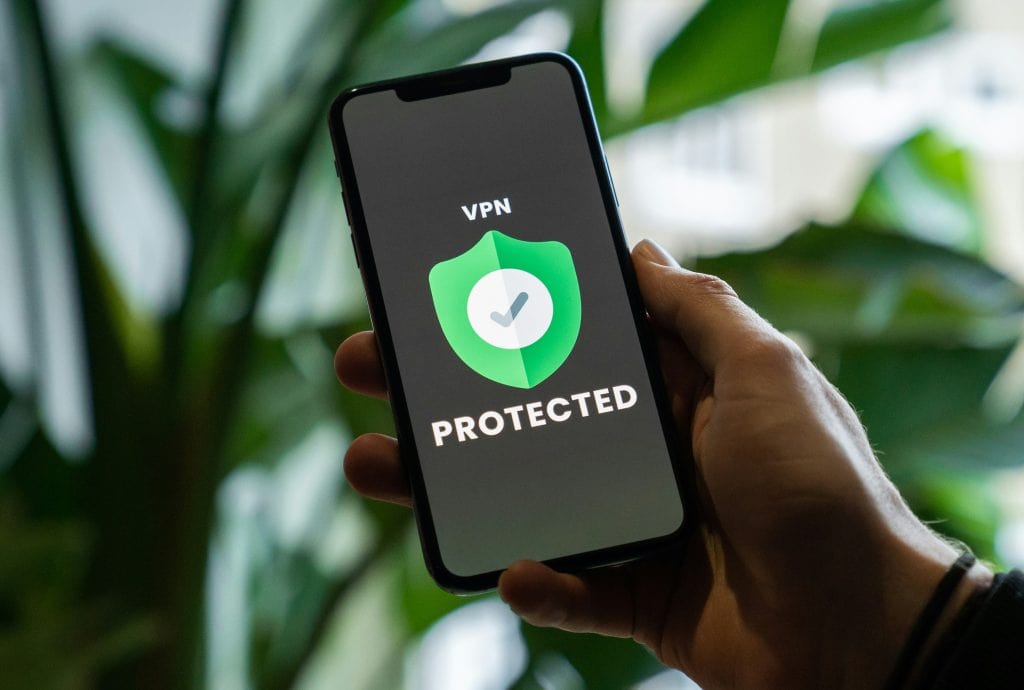
How Do VPNs Work to Protect Your Data
What Is VPN Encryption and How Does It Work?
VPN encryption is one of the most crucial features of a Virtual Private Network (VPN). It serves as the primary defense mechanism to protect your data while browsing the internet or using online services. Understanding how VPN encryption works is essential for evaluating the level of security a VPN service offers and ensuring your online privacy remains intact.
1. What Is VPN Encryption?
At its core, VPN encryption is the process of converting your internet data into an unreadable format. This ensures that even if cybercriminals or hackers intercept your data, they will be unable to understand or use it. When you connect to a VPN, your internet traffic is encrypted before it leaves your device, and it remains secure while traveling through the VPN server.
Encryption transforms sensitive information—such as passwords, personal data, or financial details—into complex ciphertext, making it virtually impossible for unauthorized parties to decipher without the correct decryption key. This makes VPN encryption a powerful tool for safeguarding your privacy and security when browsing the web.
2. How Does VPN Encryption Work?
The encryption process used by VPNs relies on advanced encryption algorithms and cryptographic keys to secure your data. Here’s a simplified breakdown of how the process works:
Step 1: Data Encryption: When you connect to a VPN, your device establishes a secure connection with a VPN server. All the data you send—whether it’s browsing activity, emails, or login credentials—is encrypted by the VPN’s encryption algorithm before it leaves your device.
Step 2: Secure Data Transmission: Your device and the VPN server establish a secure tunnel that transmits the encrypted data over the internet. This tunnel ensures that your data is protected from third parties, such as hackers, internet service providers (ISPs), or government surveillance agencies.
Step 3: Data Decryption: Once your data reaches the VPN server, it is decrypted, making it accessible for its intended destination (e.g., a website or online service). The server then returns the requested data to you, encrypting it once more before transmitting it to your device.
This process ensures that your online activities are shielded from prying eyes, making it much harder for anyone to access your personal information or monitor your internet usage.
3. Types of VPN Encryption Protocols
VPN services use different encryption protocols to protect data. These protocols are sets of rules that determine how data is encrypted and how the connection between your device and the VPN server is established. The most common VPN encryption protocols include:
AES (Advanced Encryption Standard): AES-256 is one of the strongest and most widely used encryption standards in VPN services. It uses a 256-bit key for encryption, making it nearly impossible to crack with current computing power. This level of encryption is considered military-grade and is often used by governments and financial institutions to protect sensitive data.
OpenVPN: OpenVPN is an open-source protocol known for its security and flexibility. It uses AES-256 encryption and supports TCP (Transmission Control Protocol) and UDP (User Datagram Protocol), which provide different types of data transmission based on the user’s needs.
IPSec (Internet Protocol Security): IPSec is commonly used in combination with IKEv2 (Internet Key Exchange version 2) and provides robust encryption for data transmitted over IP networks. It is often paired with AES for additional security.
WireGuard: WireGuard is a newer, faster, and more efficient protocol that provides strong security with a simpler codebase compared to older protocols like OpenVPN. It is gaining popularity for its speed and performance.
4. The Role of VPN Encryption in Online Privacy
One of the main reasons people use VPNs is to protect their privacy and keep their browsing activity anonymous. By encrypting your data, a VPN ensures that no one—whether it’s hackers, advertisers, or your ISP—can monitor what you’re doing online. VPN encryption helps you:
Hide your IP address: A VPN masks your real IP address by assigning you an IP address from a remote server, making it more difficult for websites and online services to track your location or identify you.
Secure your data on public Wi-Fi: When using unsecured public Wi-Fi networks (e.g., in coffee shops or airports), your data is vulnerable to being intercepted by cybercriminals. VPN encryption ensures your data remains secure, even on these risky networks.
Bypass censorship: In countries with internet censorship, VPN encryption allows users to bypass government-imposed restrictions and access blocked websites and content securely.
5. Evaluating VPN Encryption for Security
When choosing a VPN provider, it’s essential to check the encryption standards they offer. Verify that the service employs robust encryption protocols like AES-256 and maintains no-logs policies to safeguard your privacy. Additionally, consider the speed and performance of the VPN, as some encryption protocols may cause a slight reduction in connection speeds.
How Does a VPN Change Your IP Address?
A VPN changes your IP address by routing your internet connection through a remote VPN server. When you connect to a VPN, your device communicates with the VPN server instead of your ISP, effectively masking your original IP address. This allows you to appear as though you are browsing from the server’s location, granting you access to geo-restricted content and enhancing your online privacy. Changing your IP address is one of the primary functions of a VPN, making it a valuable tool for anyone who has an online business.
The Role of a VPN Server in Data Protection
The VPN server plays a critical role in data protection by acting as an intermediary between your device and the internet. When you connect to a VPN server, all your internet traffic is routed through this secure connection, ensuring that your data is encrypted and shielded from potential threats. The server also helps in masking your IP address, providing anonymity while you browse. Additionally, a reliable VPN server can manage and distribute bandwidth effectively, enhancing your overall internet experience. Understanding the importance of the VPN server in protecting your data is vital. For users seeking to maximize your online security with these lifetime deals.
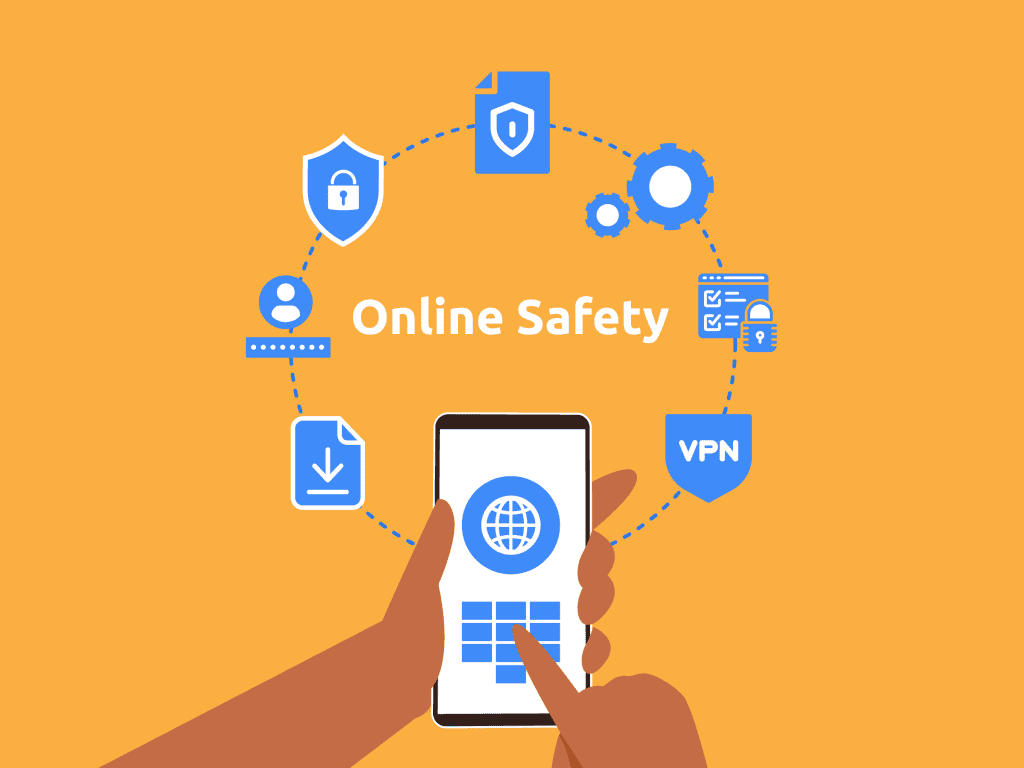
Using a VPN for Public Wi-Fi Users
VPN for Protecting Your Data on Public Networks
Using a VPN on public Wi-Fi networks is essential for protecting your data from potential threats. Public networks are often unsecured, making them prime targets for hackers and cybercriminals seeking to intercept sensitive information. A VPN encrypts your internet connection, ensuring that even if someone attempts to access your data, they will only encounter encrypted information. This level of protection is crucial for anyone who frequently connects to public Wi-Fi, as it safeguards personal data and reduces the risk of identity theft.
The Risks of Using Public Wi-Fi Without a VPN
Without a VPN, using public Wi-Fi poses several risks to your personal data. Hackers can easily access unprotected networks and monitor the online activities of users, potentially capturing sensitive information such as passwords, credit card numbers, and private messages. Additionally, unsecured public networks can facilitate man-in-the-middle attacks, where malicious actors intercept communication between your device and the internet. The risks associated with public Wi-Fi underscore the necessity of using a VPN to establish a secure connection and protect your data.
Using a VPN to Improve Your Experience on Public Wi-Fi
Yes, a VPN can significantly improve your experience on public Wi-Fi networks. By establishing a secure connection, a VPN protects your data and enhances your overall internet experience. Users often find that VPNs can provide more stable connections, reducing latency and buffering, which is particularly beneficial for streaming and online gaming. Furthermore, by bypassing restrictions that some public networks impose on certain websites or services, a VPN allows users to access the full range of online content, making their public Wi-Fi experience more enjoyable and efficient.
The Benefits of Choosing a Lifetime VPN Service
When it comes to selecting a VPN service, the option of choosing a lifetime subscription can offer several distinct advantages. While many VPN providers offer subscription-based models with monthly or annual fees, opting for a lifetime VPN service provides long-term savings and peace of mind. Here are the key benefits of choosing a lifetime VPN service:
1. One-Time Payment for Lifetime Access
The most obvious benefit of a lifetime VPN subscription is the one-time payment. Unlike monthly or annual subscriptions, which require you to renew your plan regularly, a lifetime VPN service grants you uninterrupted access for life without worrying about recurring payments. This can result in substantial cost savings over time, especially if you plan to use the VPN for several years.
For instance, if a subscription-based VPN costs $10 per month, that adds up to $120 annually. Over five years, that’s $600. A lifetime subscription typically costs a fraction of that amount, allowing you to enjoy significant savings in the long run.
2. No Future Price Hikes
A lifetime VPN service also offers the major advantage of a fixed payment. With subscription-based services, prices can increase over time as VPN providers raise their rates to cover operational costs, implement new features, or adjust for inflation. However, with a lifetime subscription, the price you pay upfront is locked in, meaning you won’t face future price hikes or unexpected renewal fees.
This pricing predictability ensures that your VPN service remains affordable for years to come, without the need to worry about annual rate increases.
3. Unlimited and Continuous Access
With a lifetime VPN service, you gain unlimited access to the software without the need to renew or reconsider your plan. Whether you’re using the VPN for online privacy, security, bypassing geo-restrictions, or data protection, you can continue using the service as long as you need, without ever having to worry about losing access or losing your protection due to a missed payment.
Additionally, lifetime VPN services often include unlimited bandwidth, allowing you to use the VPN for as much internet activity as you like, whether you’re streaming, browsing, or downloading.
4. Long-Term Security and Privacy
A lifetime VPN service provides lasting protection for your online activities. VPNs are essential for maintaining privacy, security, and anonymity while browsing the internet, and having access to a reliable service for the long term ensures that your data remains secure in the face of evolving online threats.
By using a lifetime VPN, you’ll benefit from constant encryption, protection against cyber threats, and the ability to mask your IP address from websites and online services, keeping your digital footprint private.
5. Lifetime Updates and Improvements
Many lifetime VPN providers offer continuous updates to the software, ensuring you get access to new features, performance improvements, and security enhancements over time. A lifetime VPN subscription often includes lifetime access to updates at no extra cost, unlike some subscription models where features may be locked behind additional payments or tiers.
Updates keep your VPN secure, reliable, and up-to-date with the latest standards and features.
6. Simple and Cost-Effective for Families or Multiple Users
A lifetime VPN is ideal for securing multiple devices or users in a home or business. Many VPNs let you use one account across laptops, smartphones, tablets, and routers.
A lifetime VPN is cost-effective for families or businesses securing multiple devices.
7. Peace of Mind
A lifetime VPN subscription ensures long-term online privacy and peace of mind. The one-time payment removes the stress of having to keep track of renewals, cancellations, or future billing. You can simply enjoy the service without constantly worrying about paying for another year of protection.
8. No Need for Trials or Switching Providers
A lifetime VPN service eliminates the need to continually trial different VPNs or switch providers to find a better deal. Once you’ve selected a dependable lifetime VPN provider, you’re prepared for the long term. It saves time, effort, and frustration by avoiding constant plan comparisons and value evaluations.
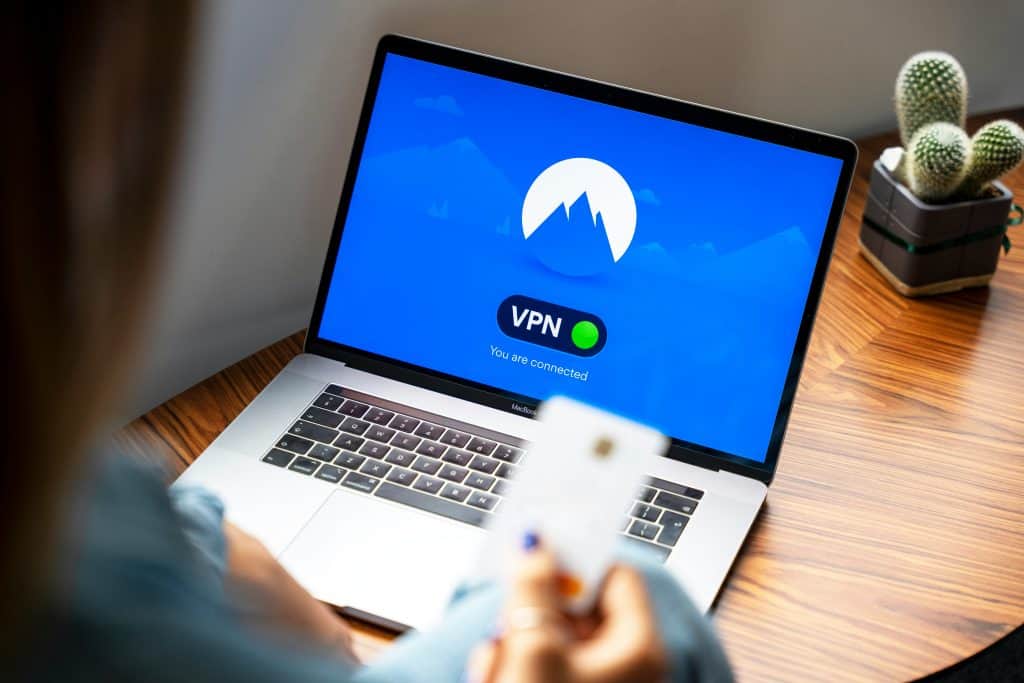
Frequently Asked Questions
Q: What are the main VPN benefits of using a virtual private network?
A: The main vpn benefits include enhanced privacy, improved security, and the ability to access geo-restricted content. A virtual private network encrypts your data and hides your IP address, providing a secure connection for online activities.
Q: What are the advantages of using a VPN for personal use?
A: A VPN protects data, secures public Wi-Fi browsing, and helps bypass online censorship. VPNs also help in maintaining anonymity while browsing the internet.
Q: How can a VPN for business improve network security?
A: VPNs can slow your internet and require a trustworthy, reliable provider. This helps protect against data breaches and unauthorized access to corporate networks.
Q: What are some common vpn pros and cons?
A: Some common vpn pros include enhanced security, privacy protection, and the ability to access restricted websites. VPNs can slow your internet and require a trustworthy, reliable provider.
Q: Do I really need a VPN on my phone?
A: You need a VPN on your phone to stay safe on public Wi-Fi and protect personal data. A mobile VPN creates an encrypted tunnel for your data, ensuring your information remains safe from prying eyes.
Q: How does using a VPN help with online privacy?
A: Using a VPN helps with online privacy by encrypting your data and hiding your IP address. This prevents websites and advertisers from tracking your online activities, allowing you to browse the internet without being monitored.
Q: What should I consider when choosing a good VPN provider?
A: Choose a VPN with strong encryption, many servers, good reviews, and a strict no-logs policy. A reputable VPN provider should also offer reliable customer support and a user-friendly vpn client.
Q: Can a VPN help with streaming services?
A:A VPN bypasses geo-restrictions, letting you stream shows and movies from other countries.
Q: What are the disadvantages of a VPN?
A: VPNs can slow internet speeds, require data trust in providers, and sometimes cause connection issues. It’s important to weigh these disadvantages against the benefits of a VPN.
